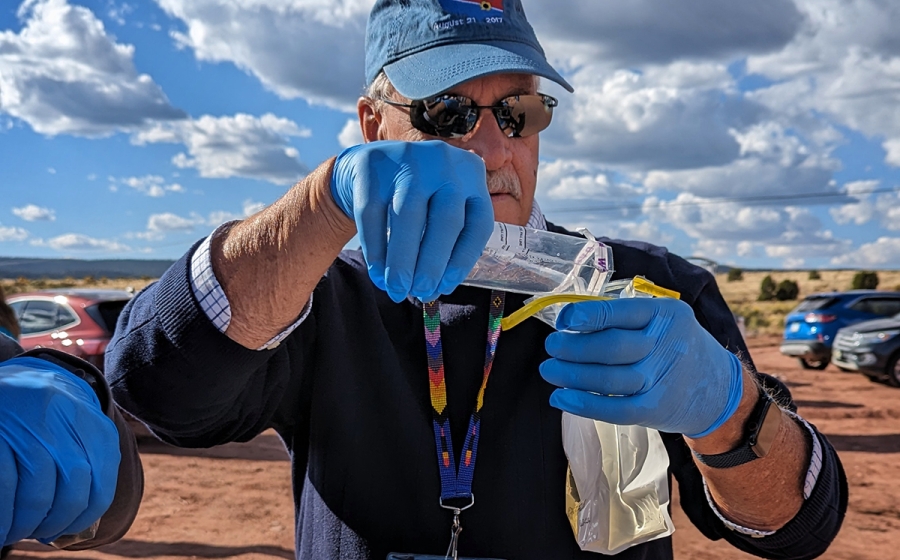When Bill Clarke was working in the early 2000s with Indigenous communities in the highlands of Guatemala to create better health outcomes, he learned two enduring lessons. First, public health field research must be sensitive to community needs, as in “listen, then act.” Second, initial funding can be a way to “set the table” for a project’s next phase.

Over his philanthropic career, Clarke has fine-tuned and applied these lessons through multiple grant projects funded by his charitable organization, the Osprey Foundation. The foundation’s primary focus is to advance clean water, sanitation, and hygiene efforts around the globe, from sub-Saharan Africa to the Peruvian rainforest. Using Clarke’s lessons to inform the foundation’s work has made for a productive and synergistic collaboration with the School’s Center for Indigenous Health, the Johns Hopkins Water Institute, and the Navajo Nation in Arizona, which are working together on a safe drinking water project in the Diné (Navajo) community.
Clarke’s philanthropic strategy starts with that first lesson about active listening: Engage community members from the outset, agree on objectives, and ensure ongoing conversation, all of which builds a growth-focused feedback loop.
Clarke explains, “It’s important to listen to the community’s needs, understand the vision, and certainly handle critiques and suggestions. Yes, it takes time, but it builds trust—which is the ultimate accelerator for lasting impact.”
Read the full story in the Bloomberg School’s Power of Public Health Philanthropy.
